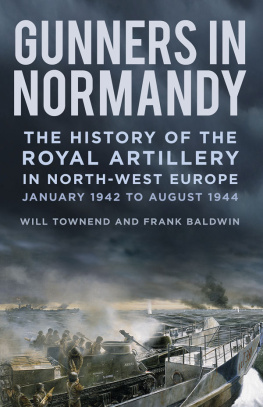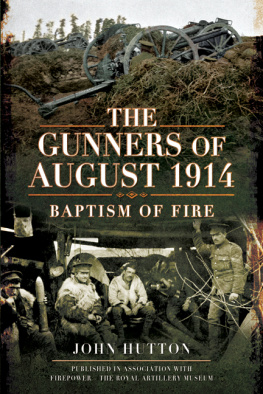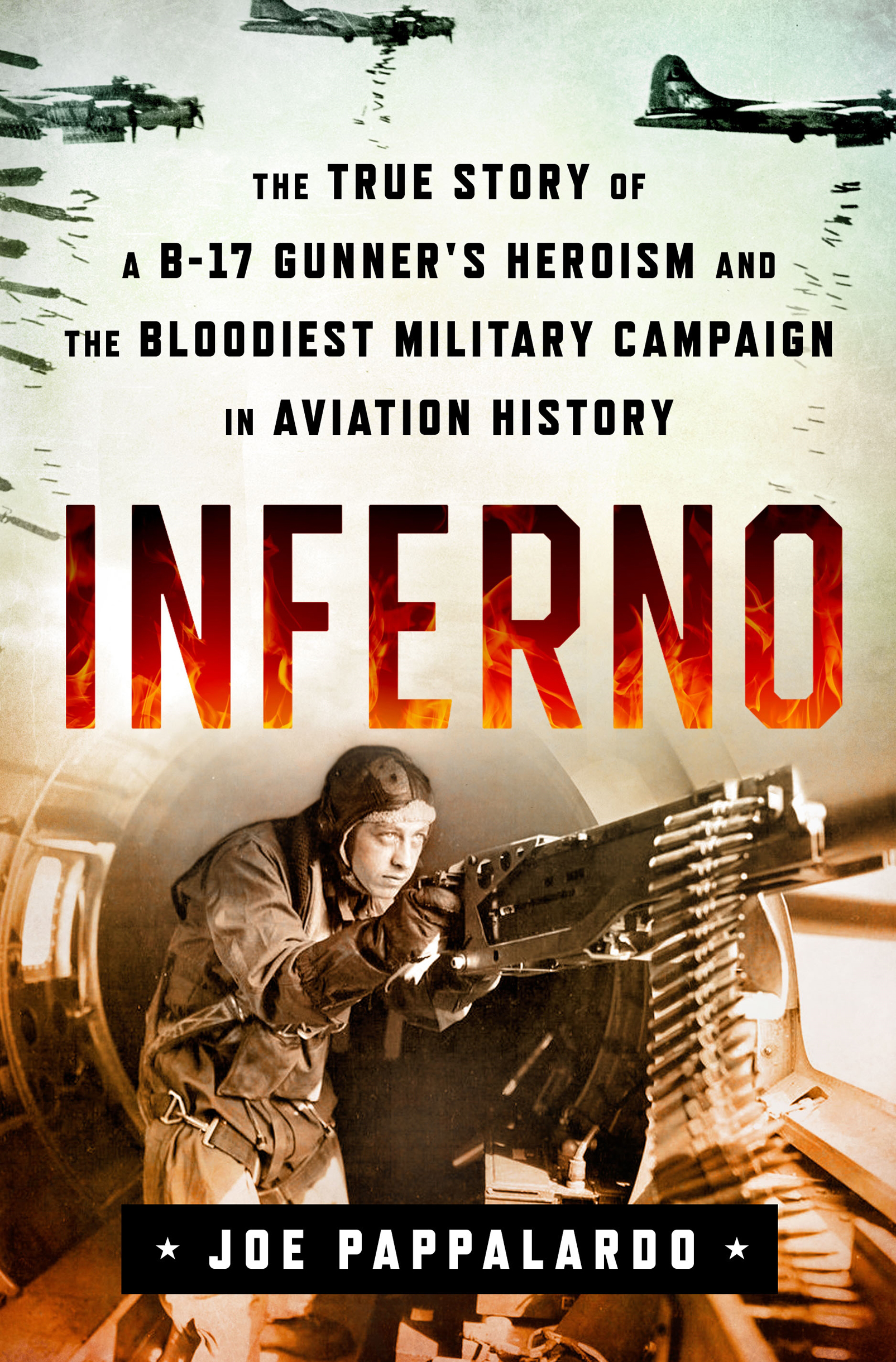The author and publisher have provided this e-book to you for your personal use only. You may not make this e-book publicly available in any way. Copyright infringement is against the law. If you believe the copy of this e-book you are reading infringes on the authors copyright, please notify the publisher at: us.macmillanusa.com/piracy.
GEN. CURTIS LEMAY,
July 12, 2019.
There are three steamer trunks in the spare bedroom of Maynard Smith Jr.s home in Seminole, Florida. Inside the boxes are the artifacts from the lifetime of his father, a World War II veteran, B-17 gunner, and the first enlisted Army airman ever to receive the Congressional Medal of Honor.
Maynard Harrison Smith Sr. lived with his son and daughter-in-law in Florida during his final years, and these trunks contain the keepsakes that he left behind when he died in 1984. No ones opened them in decades.
At age seventy-two, Smith Jr. remains a large man. These days he is attached to an oxygen line, and trails a slender, green umbilical hose when he moves around the house. Hes a Vietnam veteran; his father used his connections in Washington, D.C., to bump his son to the front of the two-year Coast Guard recruitment list, saving him from being drafted into the Army. Smith Jr. ended up in combat anyway, serving as a 5-inch gunner on the 254-foot cutter Winona.
Coast Guard cutters provided fire support for men on shore and escorted swift boats; Smith Jr. volunteered to ride on those small craft on several missions, one of which ended with a dash back to the ship with his finger plugging a gunny sergeants bullet hole. The younger Smith also ran the nightly, onboard poker game and as such was flush with money. Hes proud of his service, but certainly didnt want to go: I said to myself, I cant run off to Canada, not with the father I got.
The father and son lived together, ran a publishing business, and shot pool at halls across the country. Over their lifetimes they backed each other up in bar fights and attended presidential inaugurations. And they hunted and fished.
I was talking with my dad one time in a field, and this pheasant came up flying along the wood line, Smith Jr. recalls. He followed it and popped it off. He said that he learned how to follow birds and stuff like that because of his training on the .50 caliber. You know? You have to lead the plane.
Only a faint echo of the elder Maynard Smith can still be felt in the home, a pleasant, roomy one-story house with a screened-in pool just outside of Tampa. There are photos of Smith Sr. and a few items on display that carry his stamp, like the model of a wooden boat in the living room bearing one of his nicknames, Snuffy.
But open a steamer trunk and Smith Sr. himself erupts from within, announcing his arrival with a flurry of yellowed newspaper clippings, faded photos, military documents, Christmas cards, and programs from various military appreciation events and reunions. His son pulls out these memories by the handful.
Heres a photo of Smith Sr. shaking hands with President John Kennedy, who towers over him. Heres a news clipping featuring Smith at the elbow of the governor of Michigan in 1945. Here are his honorable discharge papers from the Army Air Forces; hes a private, having been demoted after receiving the Medal of Honor. Heres a program from a Medal of Honor Society event in Hawaii in the early 1980s, with a womans name and hotel room number scrawled on one page. Heres a postcard to his mother written from aerial gunnery school in Texas, early in his wartime military career, and underneath it a cryptic photo from an oasis in North Africa, with a handwritten notation saying MY QUARTERS with an arrow pointing to a hilltop building on the horizon.
Maynard Smith Jr. pulls more of his fathers memories from the steamer trunks, spreading the fragments across the surface of the bed. The ghostly form of a man emerges: a proud veteran, an acknowledged hero, a newspaper publisher. Closer examination reveals greatest hits of the more intimate kind: a love letter from a wartime girlfriend, a photo of him on a cruise in 1977 wearing an absurd hat with one arm flung over the shoulder of a comely older woman (not Juniors mother, hes not surprised to see), and a black-and-white photo of Smith in 1945 leaning in close to use a young womans collarbone to sign an autograph.
Dad, his son says drily, had the reputation of being well endowed.
Some members of Maynard Smith Sr.s immediate family, including a son and daughter from previous marriages, stopped speaking to him. One of his three sons died of an overdose before his father passed, the other became lost in drug abuse and died just five years after his father. Maynard Sr.s other daughter enjoyed her paternal relationship, but she and her mother had the stronger bond and lived together in Hawaii and Florida after the couple divorced. But Maynard Smith and his namesake stayed close until the end.
In late April 1984, the elder Maynard Smith staggered into the kitchen, gasping words but garbling them badly. Oak, oak, oak, he finally managed. Treated for a stroke, doctors discovered his heart was also failing. After a grueling month in the hospital, he was gone.
He was not the type of man who would listen to doctors, says Debby Wolfsmith, Maynard Smith Jr.s wife. He wasnt going to stop putting salt on his watermelon. He wasnt good at keeping up with medications, either.
Looking over the contents of the three steamer trunks, its clear that Maynard Smith Sr. curated this collection of memorabilia, intentionally or not, to be the idealized version of his life. The news clippings paint the portrait of a dedicated son, a war hero, and a successful publisher with the ear of important people.
The positive media coverage is extensive, but Smith left the negative press out of his personal archives. There are articles describing lawsuits against him, tangles with the Food and Drug Administration over a male enhancement cream, and an arrest for filing a false police report for his role in a very public hoax in 1952. There are a variety of columnists, local and national, taking potshots at his character.
The most famous detractor is Andy Rooney, who calls Smith Sr. a fuck up in his World War II memoirs, My War. The television columnist, with Stars and Stripes during World War II, is the most responsible for both creating and denigrating Smiths public image. The two short, opinionated men enjoyed bucking authoritymaybe they had too much in common to get along.
Others offer mixed reactions to his name, even thirty-five years after his death. A public affairs employee at the Medal of Honor Society remembers Smith as a crackpot and someone who wasnt shy about putting people in their place. Caroline Sheen, the veteran photo and art editor of









